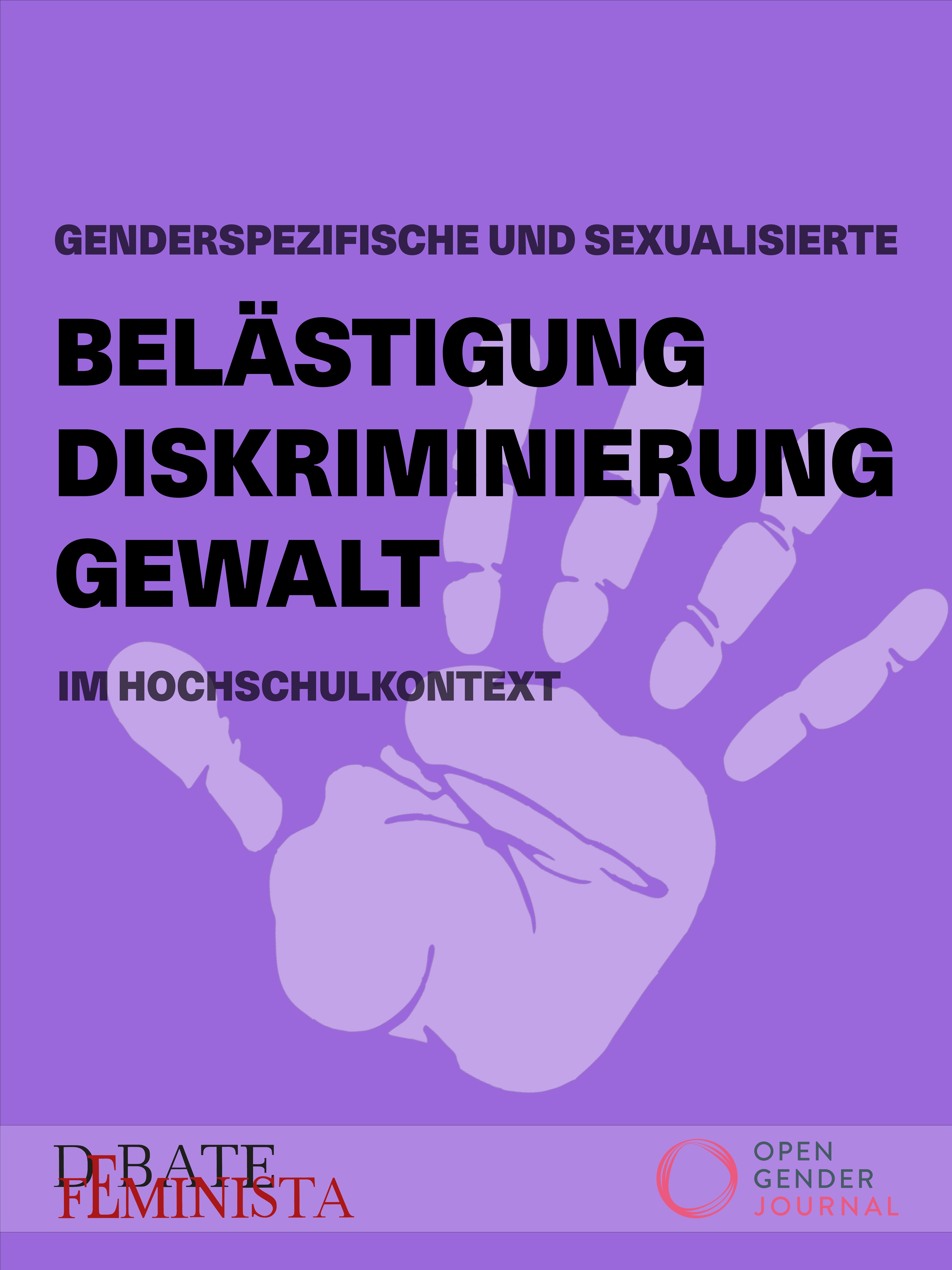Patriarchal Academia Is Violent for All, Just Not in the Same Way
Storytelling Body Maps of Our Harmed Female Bodies
DOI:
https://doi.org/10.17169/ogj.2023.253Keywords:
Gender Relations, Sexism, University, ViolenceAbstract
This article shares a body mapping experience facilitated as part of the postgraduate sociology program at the university Benemérita Universidad Autónoma de Puebla (BUAP) with the objective of recognizing and naming the patriarchal violence that harms our educational community. Within this text, we aim to organize and share this body mapping experience, focusing on the potential found in the creation of body-centered research methodologies in order to generate organizational processes within academic arenas to foster that institutions may name, analyze and collectively take responsibility for violence within their walls. This article will simultaneously present some of the violence that was reported and identified during our body mapping sessions through images and group story sharing.
References
Brotton, Jerry (2012): The History of the World in Twelve Maps. London: Penguin Books.
Cuerpa colectiva dañada (8 October, 2021): Account from the Workshop: Reconocer juntxs el daño patriarcal en nuestra cuerpa colectiva (Work Document). Puebla: Benemérita Universidad Autónoma de Puebla (BUAP).
Cuerpa colectiva dañada (15 October, 2021): Account from the Workshop: Reconocer juntxs el daño patriarcal en nuestra cuerpa colectiva (Work Document). Puebla: Benemérita Universidad Autónoma de Puebla (BUAP).
Cuerpa colectiva dañada (22 October, 2021): Account from the Workshop: Reconocer juntxs el daño patriarcal en nuestra cuerpa colectiva (Work Document). Puebla: Benemérita Universidad Autónoma de Puebla (BUAP).
Cuerpa colectiva dañada (17 November, 2021): Account from the Workshop: Reconocer juntxs el daño patriarcal en nuestra cuerpa colectiva (Work Document). Puebla: Benemérita Universidad Autónoma de Puebla (BUAP).
Cuerpa colectiva dañada (19 November, 2021): Account from the Workshop: Reconocer juntxs el daño patriarcal en nuestra cuerpa colectiva (Work Document). Puebla: Benemérita Universidad Autónoma de Puebla (BUAP).
Esteban, Mari Luz (2004): Antropología del cuerpo. Género, itinerarios corporales, identidad y cambio. Barcelona: Bellaterra.
flores, val (2019): Una lengua cosida de relámpagos. Buenos Aires: Hekt.
Marchese, Giulia (2020): Subvertir la geopolítica de la violencia sexual. Una propuesta de (contra) mapeo de nuestros cuerpos-territorio. In: Cruz Hernández, Delmy Tania/Bayón Jiménez, Manuel (Ed.): Cuerpos, Territorios y Feminismos. Compilación latinoamericana de teorías, metodologías y prácticas políticas. Mexico City, Quito: Editorial Abya-Yala.
Risler, Julia/Ares, Pablo (2013): Manual de mapeo colectivo. Recursos cartográficos críticos para procesos territoriales de creación colaborativa. Buenos Aires: Tinta Limón.
Ruiz Trejo, Marisa/García Dauder, Dau (2018): Los talleres “epistémico-corporales” como herramientas reflexivas sobre la práctica etnográfica. Universitas Humanística, 86, 55–82. doi: 10.11144/Javeriana.uh86.tech
Segato, Rita (2003): Las estructuras elementales de la violencia. Ensayos sobre género entre la antropología, el psicoanálisis y los derechos humanos. Buenos Aires: Prometeo Libros.
Segato, Rita (2019): Patriarcado y Violencia Hoy con Rita Segato. https://www.youtube.com/watch?v=RzD0yNAHkUI (06.10.2023).
Segato, Rita (2018): Contra-pedagogías de la crueldad. Buenos Aires: Prometeo Libros.
Smith, Dorothy (2005): Institutional Ethnography. A Sociology for People. Lanham, New York, Toronto, Oxford: Rowman & Littlefield.

Downloads
Published
How to Cite
Issue
Section
Categories
License
Copyright (c) 2023 Lucia Linsalata

This work is licensed under a Creative Commons Attribution 4.0 International License.
All contributions in Open Gender Journal are published under the Creative Commons Attribution 4.0 International license. You may freely make use of the corresponding texts in accordance to the conditions of the license (License contract, generally understandable version). There is no exclusive transfer of usage rights ("copyright transfer"). Open Gender Journal does not charge authors any costs for publication (so-called Article Processing Charges, APC) or submission (so-called Submission Charges). Authors are encouraged to share their contributions in other places, such as repositories.













